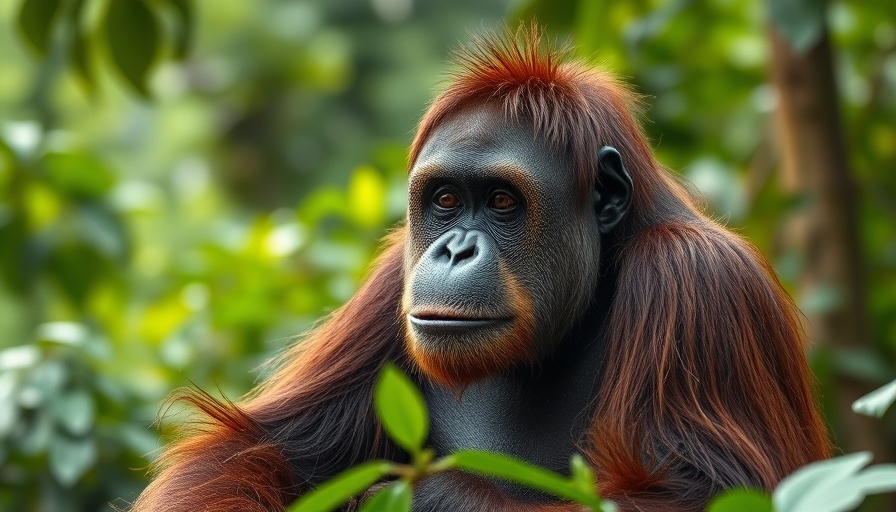
Understanding Orangutans’ Diet Strategies
Orangutans, nature’s remarkable great apes, have evolved in the unpredictable rainforests of Borneo, showcasing incredible dietary habits that humans could greatly benefit from observing. A recent study led by researchers from Rutgers University reveals that these primates have effectively managed their health through strategic eating and activity adjustments in response to food availability, something modern humans often struggle with.
The Science Behind Their Success
The study emphasizes how orangutans shift their diets between fruits, leaves, and even stored body fat, depending on the season. This adaptability is a survival mechanism that helps them maintain a healthy weight and avoid obesity, which has become a growing concern for many individuals today, especially given the prevalence of processed foods in human diets. Unlike orangutans, who smartly reduce physical activity during periods of low food availability, many people do not adjust their lifestyle to match their dietary heaps, leading to overweight issues exacerbated by sedentary behaviors.
Lessons Humans Can Learn From Orangutans
The findings underscore that orangutans balance protein intake with energy expenditure far more effectively than humans. Erin Vogel, a professor involved in the study, suggests that understanding these adaptations can offer invaluable insights into how we can improve our nutrition and health management. By mimicking their flexibility—eating less when food is scarce and more when available—we may find a healthier relationship with food and exercise.
Natural Solutions for a Balanced Diet
In an era where health and wellness dominate conversations, embracing natural foods that align with wellness principles can guide individuals on the path to a healthier lifestyle. Emphasizing “natural healthy foods” over processed options and understanding their inherent benefits will cultivate better lifestyle choices. Incorporating fresh fruits and vegetables encourages not just optimal health but also the vitality associated with whole foods.
Community Health: An Integral Aspect
Moreover, understanding orangutan dietary habits opens up broader discussions around community health initiatives. In places like San Antonio, local health and wellness centers could draw from these studies when launching community health programs. By implementing educational workshops, involving residents in exploring natural therapeutic options, and encouraging healthier lifestyle practices, we can foster a culture of well-being that mirrors the balanced living strategies of orangutans.
The Future of Health and Wellness
The relationship between orangutans and their diets also serves as a reminder of the importance of conserving their habitats. As these great apes face extinction threats due to habitat destruction, protecting their living environments ensures the continuation of their remarkable survival strategies and could inspire healthier human practices. A shared evolutionary background highlights parallels that can guide us in addressing our dietary and ecological changes.
Taking Action for Health
It is imperative for individuals to reflect on their dietary patterns while considering the strategies demonstrated by orangutans. Shifting focus towards incorporating natural foods, maintaining a balanced diet, and adjusting adhering to seasonal food availability can lead us to healthier outcomes. It is vital to integrate these insights as part of our everyday lives.
To learn more about fostering a vibrant health and wellness lifestyle, consider exploring local health and wellness resources or participate in community programs designed to motivate healthier living. By prioritizing holistic health, we not only take charge of our well-being but also pave the way for a sustainable future.
 Add Element
Add Element  Add Row
Add Row 




Write A Comment